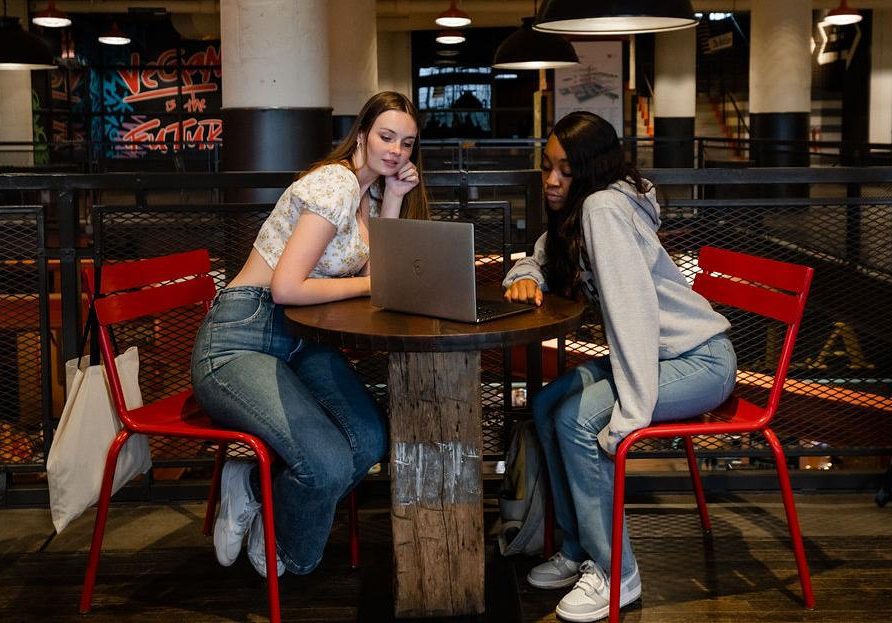After researching, touring, and comparing properties, you have finally decided on the perfect housing location near Georgia Tech. Taking the next step and signing a lease is both exciting and overwhelming, especially if you are not entirely sure what you are committing to.
Read Next: 15 Questions to Ask on Student Apartment Tours in Midtown
At Whistler, we want to help simplify the leasing process for Georgia Tech students by answering your questions regarding individual leases. In this article, we will discuss:
- What is an individual lease
- Important things to look out for when preparing to sign a lease
- How to sign an individual lease
Signing a Lease at a Student Apartment Near Georgia Tech
What is an individual lease?
To begin, let’s define what a lease really is.
A lease is a legally binding contract between a tenant and a landlord that states the terms and conditions of a rental agreement and outlines the responsibility of each party. This written agreement includes things like the individual cost of rent and the length of time the lease period.
Although there are other kinds of leases, student-oriented, off-campus apartment complexes most commonly offer individual leases. An individual lease, also known as a “by the bedroom lease,” is one that holds its signer (and guarantor) responsible only for their individual bedroom and common areas. Roommates pay rent to the landlord separately and are not held responsible for the other tenant’s bedrooms or rent.
For example, if you sign an individual lease to live in a 3×3 (three bedroom, three bathroom), three total leases are signed. Each roommate has their own lease for a specific bedroom, bathroom, and use of common space and is responsible for paying their own rent. Individual rent rates can also vary depending on factors like room size or whether or not the bedroom has windows.
Read Next: 5 Benefits of Signing an Individual Lease as a Student in Midtown
Important things to look out for when signing an individual lease

Before you sign a binding contract, it is important to know exactly what you are committing to. Here are some key points you should review in your lease before taking any next steps.
- Important dates – Move-in, move-out, holidays, renewal dates, etc. are important to mark on your calendar to make sure they will work with your schedule.
- Important fees – Your lease should explicitly state any fees you are expected to pay with your rental rate, as well as any additional fees you could be subject to. Review these to make sure you are not hit with any unexpected fees.
- Rent amount and due date – Verify the rental rate is what you were expecting and check the date that rent is due. Make sure to mark these dates on your calendar to avoid any late fees.
- Renters insurance – Renters insurance is important and many apartment complexes require you to have it. Check to see if renters insurance is optional for you, and, if you decide to get the insurance, what the company’s policy is and how much they will charge you.
- Pet policy – If you are planning on bringing a pet, make sure the pet fees and pet policy are what you are expecting. Check for limitations of animal, breed, size, etc.
- Length of the lease – Most student apartments are 12-month leases, but make sure you verify this before signing, as some apartments offer shorter leases.
- Renewing your lease – If you expect to live in your apartment for a period of time past your original lease, take note of the renewal date listed on the lease to ensure you do not miss any deadlines.
- Breaking your lease – While you may not expect to ever run into an issue where you need to break your lease, life happens, and it is important to familiarize yourself with the policy just in case a scenario occurs.
- Subletting – Many students have summer plans like studying abroad, visiting family, summer internships, etc. that may require them to spend an extended period of time away from their apartment. If you are planning to sublet your apartment during the summer, read your lease to see if subletting is allowed and what type of approval you will need from your landlord to successfully complete the sublease.
If any of this information is not included in your lease, verify this information with your landlord before signing.
Signing the lease
After carefully reading the terms and conditions of your lease, it’s time to sign!
Most college students either only work part-time or don’t work at all. Because their income is not high enough to be held liable for rent, most student apartments will require you to sign with a guarantor.
A guarantor is someone who co-signs your lease and is responsible for any payments you cannot or do not make. For a college student, this would likely be a parent or guardian.
For you and your guarantor to be approved to sign, you will need to provide bank account statements, pay stubs, and both of your Social Security numbers so the landlord can run a credit check.
When you know what to expect and what to look for in a lease, the process is a breeze. If you need any further help or have any questions, please reach out to our leasing staff at Whistler. We are happy to help you on your student housing journey!


